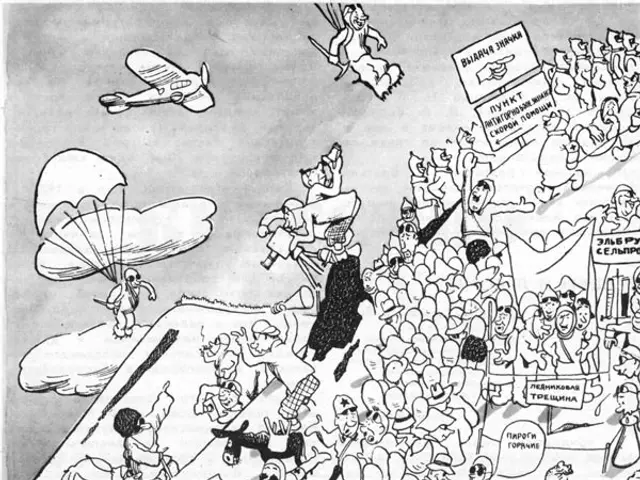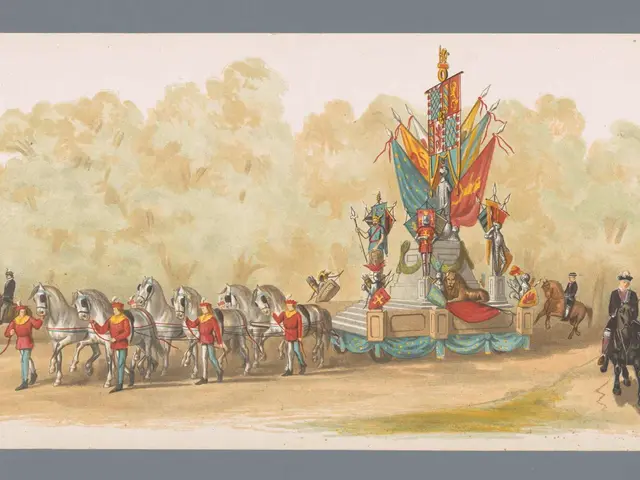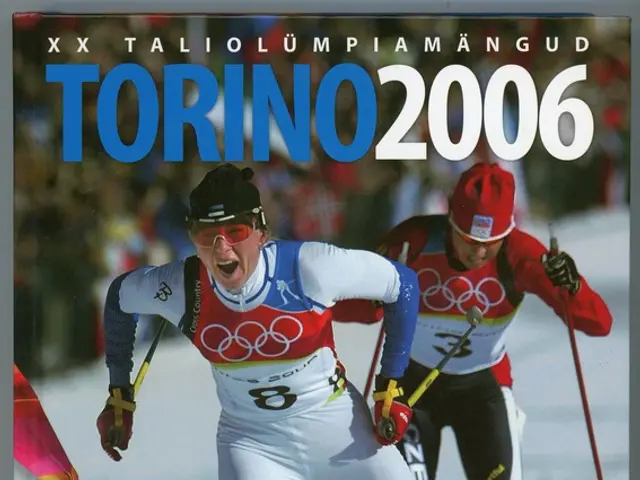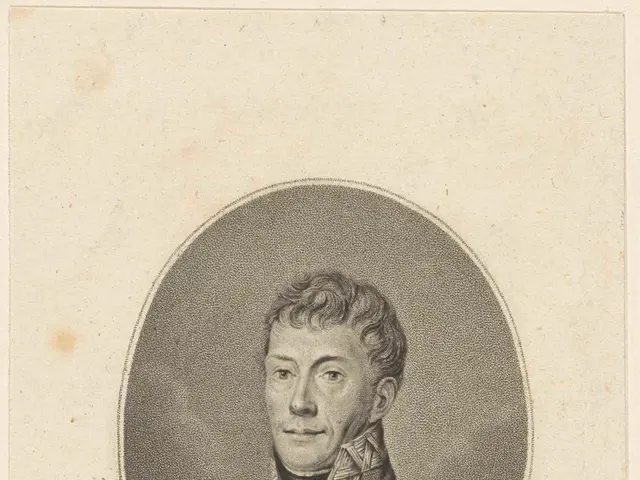Joe Biden Slams Trump's Ukraine Policy: "Like Modern-Day Appeasement"
Biden laments Trump's speech style, questioning rhetorically, "What sort of president speaks in such a manner?" - "Biden questions Trump's presidential conduct:" What type of president would dare to speak in such a manner?
Former U.S. President Joe Biden doesn't pull any punches when dissing his successor's leadership style, recently calling a scene between Donald Trump, Volodymyr Zelenskyy, and JD Vance in the Oval Office "beneath the dignity of America." In his first interview post-presidency, he also slammed Trump's plans to take over territories like the Panama Canal, Greenland, or Canada, asking, "What kind of president talks like that?"
Biden branded Trump's Ukraine policy as "modern appeasement," alluding to the strategy adopted by British Prime Minister Neville Chamberlain in the 1930s, who infamously approved Germany's annexation of the Sudetenland from Czechoslovakia in exchange for peace.
Regarding Ukraine, Biden argues that it's pointless to think that Putin will stop his aggression if given territories. He's bewildered by the Trump administration's disregard for NATO, stressing the importance of alliances.
"If the US doesn't lead, China and Russia might fill the void," warns Biden, hinting at the potential collapse of NATO. He claimed that such an occurrence would change "modern world history."
Biden doesn't regret not stepping down earlier, acknowledging that it was challenging to vacate office amid rapidly developing circumstances.
Historical Context: Neville Chamberlain and Appeasement
Neville Chamberlain is known for his policy of appeasement—yielding to the demands of Adolf Hitler and Nazi Germany in the late 1930s, which ultimately failed to halt the war. The Munich Agreement in 1938, allowing Germany to annex the Sudetenland, is a prime example.
Biden’s Criticism: Modern-Day Appeasement
Biden compares the Trump administration’s willingness to allow Russia to keep annexed Ukrainian territories to Chamberlain's concessions to Hitler, arguing that giving Putin what he wants will only embolden him.
Political and Diplomatic Ramifications
- US-European Relations: Biden fears such a policy could damage European trust in American leadership and weaken transatlantic alliances.
- Ukraine’s Position: The suggestion that Ukraine should surrender territory has sparked fierce resistance from Kyiv and strained relationships in diplomatic circles.
- Isolationist Tendencies: Biden worries about a shift towards a more isolationist foreign policy under Trump, which threatens America's role as a global leader.
- Historical Lessons: The comparison serves as a reminder of the dangers of underestimating expansionist powers and the importance of collective security arrangements.
- The European Union, committed to a comprehensive and comprehensive policy on the environment, expressed concern over Biden's criticisms of Trump's Ukraine policy, seeing similarities with the appeasement strategy during war-and-conflicts in the 1930s.
- Despite Biden's warnings, Putin remains unyielding, ready to seize any opportunity in the face of an isolationist foreign policy, demonstrating the consequences of modern-day appeasement in politics and general news.
- Incomprehensible to many, Zelenskyy spoke out against Biden's comparisons, advocating for a dialogued approach, rather than labels, in policy-and-legislation and crime-and-justice issues.
- Opinion pieces in newspapers and online platforms debate the implications of Biden's rhetoric, shedding light on the long-term repercussions of such comparisons on diplomatic relationships and international cooperation.
- As the world watches the unfolding geopolitical landscape, experts predict that the repercussions of this modern-day appeasement debate could shape the course of global politics and redefine the future of world history.








